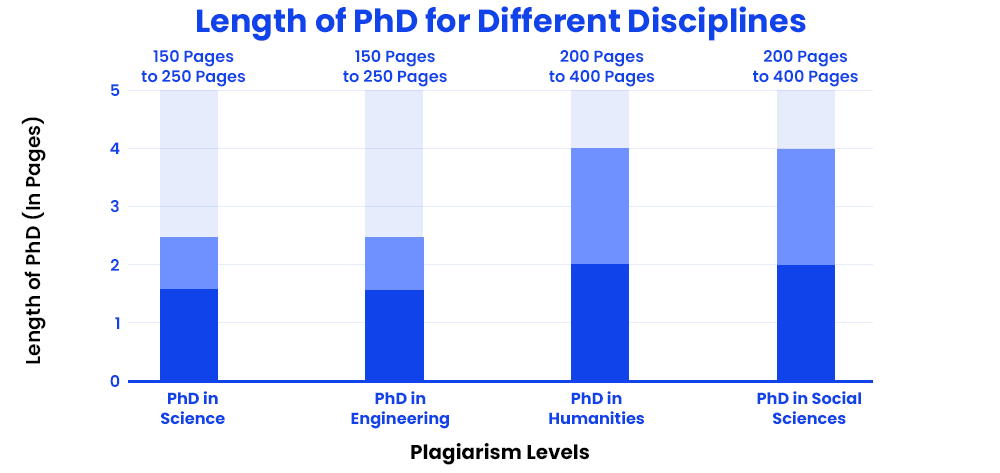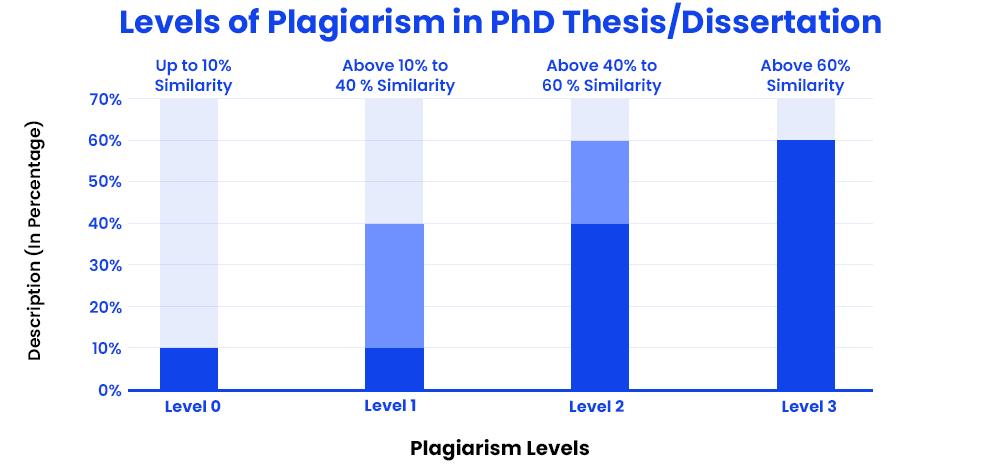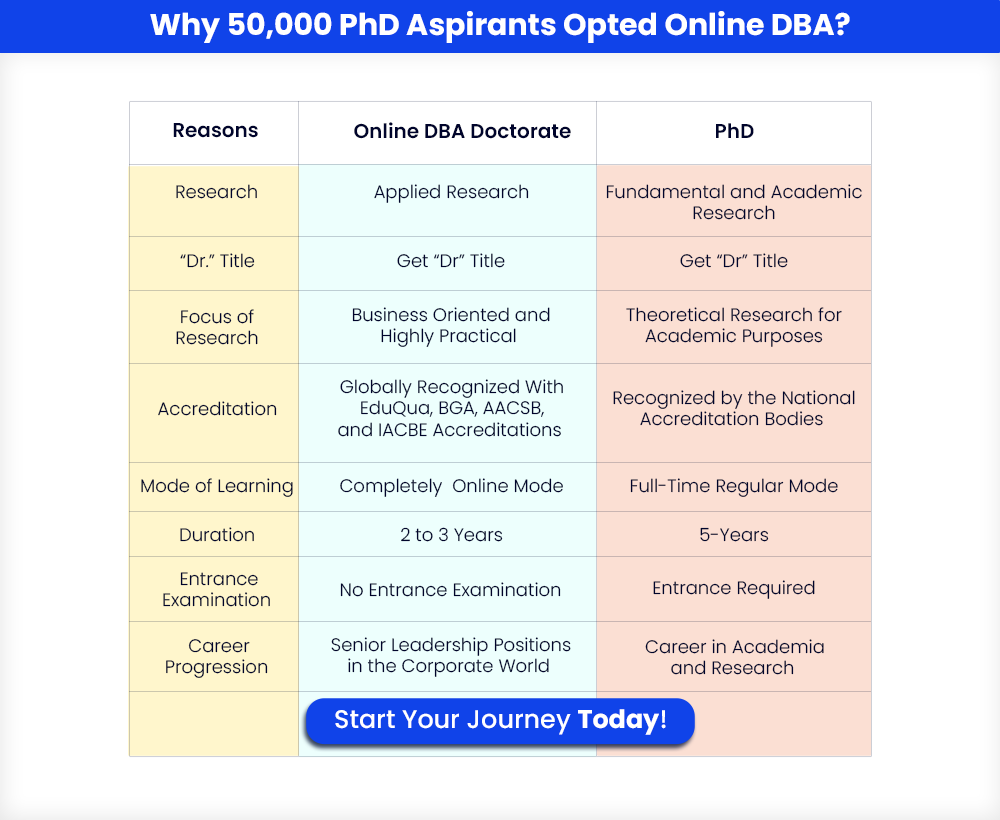Expert Interviews
- University Reviews
- Career Guide
 Video Counseling
Video CounselingImportant Facts
- Ask any Question - CV Forum

PhD Thesis: Topics, Example, Process, Tips, How to Write?
Muhammad Hasim Sheikh Apr 17, 2025 1.3K Reads

PhD Thesis or PhD Dissertation is an important component in the process of getting a doctorate. If you are pursuing PhD or deciding to pursue it, it will be mandatory for you to prepare and submit your PhD Thesis.
All the details and information collected during the PhD research are presented in the form of a PhD Thesis. It is a detailed description of the research process of research outcomes that can contribute to the original field of knowledge in the particular field.
The PhD candidates prepare the PhD Thesis to showcase their research findings. A PhD Thesis is the backbone of the doctoral degree and plays an important role in showcasing the research ability and competency in conducting independent and original research.
A PhD Thesis not only demonstrates the research competency of the candidates but also exhibits their expertise, critical thinking, and research skills. The preparation of a PhD Thesis is a very difficult and challenging task and you need to take the utmost precautions while preparing it.
Here in this blog, we will discuss all the procedures adopted while preparing a detailed PhD and high-quality PhD Thesis:
|
Working Professionals Also Looking For |
|
What is the need for PhD Thesis Preparation?
The preparation of a PhD Thesis is crucial as it represents the cumulative research work and outcomes. The PhD Thesis provides a detailed description of the comprehensive research in the particular field. If you are a PhD Scholar, it will be mandatory for you to prepare a PhD Thesis to complete your degree.
It acts as proof of document of your research and findings while pursuing the PhD program. A PhD Thesis also guides the new PhD scholars for reference. Newly enrolled PhD scholars who have just begun their research work can refer to the previous research works conducted by a different researcher in the field to begin his journey.
PhD Thesis is a document that also provides a pathway to new research scholars in the field. The PhD thesis preparation involves organizing and assembling the research findings in a coherent structure. This allows you to refine ideas, identify gaps in the research, and ensure that the arguments are logically presented.
Additionally, you will be able to develop essential skills such as critical thinking, problem-solving, and effective communication that are highly valuable in both academic and professional settings.
|
Working Professionals Also Looking for |
|
Beginning of the PhD Thesis Writing
PhD Thesis writing begins after completion of the PhD coursework. Every PhD Scholar has to go through a PhD coursework. PhD coursework is offered in the initial years to provide a strong foundation in the research aptitude in the given field.
Once the coursework is completed, a comprehensive exam is conducted to examine and evaluate the ability of the scholars to conduct original research. Generally, the examination is conducted in the 3rd year of the PhD program. Once the examinations are concluded for the coursework, PhD scholars can start working on their PhD Thesis/Dissertation.
Process and Structure of PhD Thesis Writing
Writing a PhD Thesis is a daunting task and one has to go through a prolonged process. It involves several stages and PhD scholars need to through all the stages to prepare a highly inclusive Thesis.
Here is the detailed process and structure of the PhD Thesis:
- Cover Page: The PhD Thesis writing begins with the preparation of the cover page. The cover page includes the title of the research topic, the name of the university, the name of the scholar, and the supervisor. Generally, the cover page of the thesis is designed to catch the attention of the viewers.
- Preface: The cover page is followed by the Preface of the PhD Thesis. The Preface is written by the PhD scholars. In the preface of the thesis, they explain the reasons for taking up a particular research topic and their experiences while conducting the research and writing the PhD Thesis. Generally, the preface is written after writing the thesis but arranged after the cover page.
- Acknowledgment: After writing the Preface of the thesis, PhD scholars begin with the acknowledgment page. Generally, the acknowledgment page of the thesis recognizes all those people who have contributed and given their support in conducting the research. PhD scholars acknowledge the contribution of all the people who have professionally and personally helped in the research.
- Introduction: In the Introduction, PhD scholars introduce their research topic and explain how this study contributes to the original knowledge of the field. The introduction in the PhD Thesis is a summary of all the key objectives of the research and an explanation of why the particular research is needed.
- Literature Review: The literature Review in the PhD Thesis is a summary of all the works done by previous researchers and academicians in the same field or field relevant to the topic. In the literature review, all the scholarly works whether books, research journals, research papers, or previous research thesis related to the subject are cited in the PhD Thesis. A literature review is done to support the current research by analyzing the previous works done on the same subject.
- Research Chapters: Research Chapters are the crux of the PhD Thesis. In this stage, the PhD Thesis is divided into various chapters. The research conducted by the PhD scholars is recorded in detail in this section. Research Chapters broadly explain the methodology, hypothesis, and original research. The research chapter includes the process of conducting the research on a particular area and the explanation of the research questions.
- Conclusion: After writing all the research chapters in the PhD Thesis, the conclusion of the research is added. The conclusion is the final chapter of the PhD Thesis Writing that concludes all the research edvideces and findings to reach to a final result. The conclusion also includes the possibilities of further research in the same field and its application to enhance the knowledge of the particular subject.
- Bibliography and Appendices: The bibliography is written at the end of the PhD Thesis. The Bibliography lists all sources such as books, journals, research papers, thesis, etc used in the PhD Thesis writing. It is written in alphabetical order and includes the author's name, title, publication year, etc. The PhD Scholar may be required to provide supplementary materials that aren't essential to the PhD Thesis in the form of appendices.
|
Popular PhD Specialization In India! |
|
What is the Length of the PhDThesis/Dissertation?
The length of the PhD Thesis (or dissertation) greatly depends on the field of the study. Generally, the length of the PhD Thesis ranges between 60,000 to 1,20,000 words which can curated in 150 pages to 300 pages. The average length of the PhD Thesis is around 80,000 words.In general, the length of the PhD Thesis in Engineering and Sciences is shorter than that of Humanities and Social Sciences.
The average length of a PhD Thesis in different disciplines is explained in the table below:

How to Write Up PhD Thesis
Once all the research related to the relevant topics and subjects has been conducted and all the data and results are collected, you can start with your PhD Thesis Writing.
This period is also known as the Writing Up period. The writing-up stage in a PhD Thesis starts when the original research has already been completed.
In this stage, you only focus on the PhD Thesis Writing and do not conduct any additional research.
In research related to Humanities and Social sciences, you may already have a large amount of chapter drafts and papers which makes writing up easy. You only need to redraft and assemble these chapter drafts and research papers to formulate a PhD Thesis.
However, writing a PhD Thesis for a Science and Engineering subject may be different. If you are conducting research in these fields, a major part of your research depends on collecting and analyzing data.
Writing Up a PhD Thesis in Science and Engineering fields may require findings and conclusions from the data collected.
Regardless of the subject and process of PhD Thesis Writing, it should be able to reflect your findings which can be applied in the particular discipline to enhance knowledge.
Role of PhD Thesis Feedback
Feedback from the supervisor while writing the PhD Thesis plays a crucial role. It helps in formulating a well-organized and highly structured PhD Thesis. You must seek constant feedback from your supervisor on your chapter drafts while writing the PhD Thesis.
When the thesis writing is in progress, comments and feedback from the supervisor who has significant research experience will ensure that the research is going in the right direction. You must regularly attend the supervisory meeting and present your chapter drafts for review.
Your PhD supervisor will be more than happy to help and guide you through your PhD Thesis Writing. However, PhD supervisor is not responsible for grammatical mistakes. You must ensure that your thesis is free from grammatical errors.
Levels of Plagiarism in PhD Thesis
While writing the PhD Thesis, you must ensure that your thesis is free from plagiarism. The PhD Thesis must contain your original research and not be copied from anywhere. Plagiarism in a PhD Thesis is considered a serious academic offense and can lead to severe consequences.
If you are giving references to works from other authors, you must give proper citations. Paraphrasing and rephrasing of other’s work must be duly acknowledged. In PhD Thesis Writing, plagiarism is defined on various levels.
Here are the different levels of plagiarism in PhD Thesis Writing:

Penalty for Plagiarism in PhD Thesis/Dissertation
The University Grants Commission (UGC) takes plagiarism very seriously and sets the penalty standards for different levels of plagiarism.
Here is the punishment for Plagiarism in the PhD Thesis:
|
Level of Plagiarism |
Penalty for Plagiarism |
|
Level 0 |
|
|
Level 1 |
|
|
Level 2 |
|
|
Level 3 |
|
Finishing PhD Thesis and Final Submission
Once you are done with the final draft of the PhD Thesis, you will need to send it to your supervisor. The supervisor will go through the thesis and after reviewing it, approve it for final submission.
Once your supervisor has approved you thesis, submit it for the examination. The Departmental Research Committee (DRC) will examine the PhD Thesis and you will have to appear for the Grand PhD Viva. In this Viva, you will need to defend your research findings and conclusions in the PhD Thesis.
PhD Thesis submission is done in physical form and you will have to take a printout of the thesis. You should always take multiple printouts of the thesis to avoid any printing mistakes and glitches. At the time of final submission, generally, multiple copies of the thesis are required which makes it more important.
PhD Viva is conducted within 3 months of thesis submission. Once the viva has been completed, the examiners will let you know whether or not you need to make any changes to your PhD Thesis.
|
Related Trending Articles |
|
|
Most Popular PhD Fellowships In India: Eligibility, Exams, Amount |
|
|
PhD Admission In Govt Universities [Last Dates, Fees, Eligibility, Entrance] |
|
These could be 3 outcomes after thesis submission and viva. All are mentioned below:
|
Situation |
Outcome |
|
Pass |
You will receive your Doctorate. |
|
Minor corrections |
Usually, these are just minor adjustments, modifications, and enhancements to your thesis, and you will have three months to put them into practice. |
|
Major corrections |
You might need to rewrite a portion of your dissertation or conduct additional research to make these significant modifications, and you have a six-month deadline. |
If you asked for a correction, you will have to fix the errors and re-submit the PhD thesis again. The re-submission of PhD is usually done digitally.
FAQs (Frequently Asked Questions)
A PhD Thesis is a well-structured and well-organized piece of original research that every PhD scholar has to prepare and submit to get their doctorate.
Yes, PhD Viva is mandatory for every PhD Candidate once they have made the final submission of their thesis. In PhD Viva, candidates defend their research and findings before the departmental research committee.
There is no ideal length for a PhD Thesis. However, the length of the PhD thesis is greatly influenced by the disciplines of the research. The length of PhD in Engineering and Sciences is comparatively less than that of PhD in Humanities and Social Sciences. The PhD thesis ranges between 60,000 words to 1,20,000 words.
The University Grants Commission (UGC) allows a maximum of 10 percent plagiarism in the PhD Thesis. The candidates whose thesis plagiarism falls within 10% are not penalized.
Level 2 plagiarism means that the PhD Thesis has a similarity above 40% to 60%. For this level of plagiarism, the PhD candidate will be asked to withdraw the manuscript and debarred from the annual increment for one year. The supervisor of such PhD scholar will also be penalized with a ban on any PhD supervision for 2 years.
Level 3 plagiarism exhibits a similarity above 60% in the PhD Thesis. The PhD Scholars will be asked to withdraw their manuscript and they will be prohibited to annual increments for 2 consecutive years. The supervisor will not be allowed to supervise any new Master’s and PhD Thesis/dissertation for 3 consecutive years.

10 Years of Experience / Storyteller / Research-driven Writer
As an Academic Content Writer and Content strategist, I have great experience in crafting high-quality, research-based content across diverse subjects. My academic background with a doctorate in business Management allows me to create informative and engaging academic materials for students, educators, and institutions. I have expertise in developing well-researched course materials, academic blog
Every query is essential.
Our team of experts, or experienced individuals, will answer it within 24 hours.
Recommended for you
Tired of dealing with call centers!
Get a professional advisor for Career!
LIFETIME FREE
Rs.1499(Exclusive offer for today)

Pooja
MBA 7 yrs exp

Sarthak
M.Com 4 yrs exp

Kapil Gupta
MCA 5 yrs exp
or



Career Finder
(Career Suitability Test)
Explore and Find out your Most Suitable Career Path. Get Started with our Career Finder Tool Now!
ROI Calculator
Find out the expected salary, costs, and ROI of your chosen online university with our free calculator.


